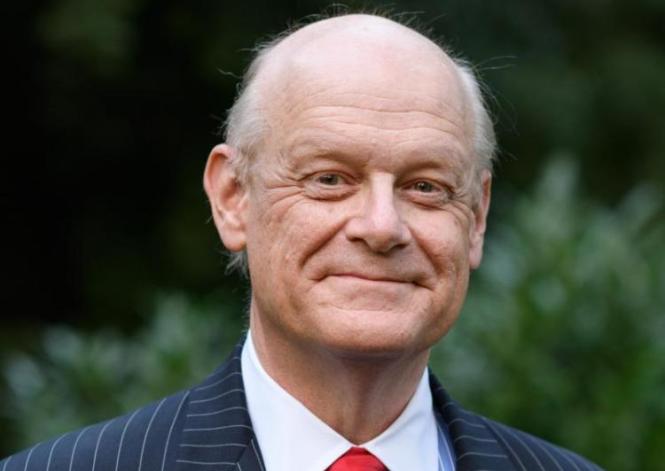
Dr. Allen Guelzo's Retrospective on Templeton's Founding
October 19, 2024
It was David Black, then the president of Eastern, who first put the idea of an honors college at Eastern before me in 1998. David had only just become Eastern’s president, after a lengthy and difficult presidential search, and I was dealing with an offer to become the provost of another Christian college. He was eager to establish some stability; I was eager to do something new; and the two desires met when he suggested the creation of an academic track that would recruit the best and the brightest of Christian young people making their plans for the world of higher education.
This was not as off-hand a proposition as it might seem. Eastern is a place with a long tradition of evangelical egalitarianism. Designing a program just for those who could be tagged as ‘special’ looked at first as though it was marking out some peculiar place of privilege, when the one word that has no place in the kingdom of God is privilege. Yet, there was a good word to be said for an initiative which would offer something unique to the inquisitive eighteen-year-olds who could have easily traded-in their SATs for an Ivy League institution but who wanted to learn how to think in the environment of a Christian college.
Pretty unlikely, said the knowledgeable. Impossible, said skeptics.
But, then again, I am a sucker for the unlikely and the impossible.
I agreed. And when the Templeton family also agreed that this was a new direction worth their personal interest, I became the first dean of the Templeton Honors College.
At that point, however, I was a captain without a ship. So, very early on one mild May morning in 1998, sitting by an open hotel window in Washington (where I was attending a conference), I sat down and began sketching the outlines of what would become the THC. We would not try to create an entirely new college curriculum; instead, we would take the existing core curriculum courses, and convert them into small-scale seminars. We would deal largely in the humanities, but still include the sciences. We would turn to existing faculty (David Bradstreet and Philip Cary for starters) to preside at the seminars. We would ask only the biggest questions (What are the liberal arts? Who was Shakespeare? What is the cosmos?) and read the biggest books. We would be on the road every month, to the Philadelphia Orchestra, to the Delaware Art Museum. We would recruit twenty students as a cohort each year, but they would live residentially with everyone else, not in a little park of their own. Each applicant would be interviewed personally. We would keep all and every question about politics firmly and entirely off the stage.
And because we didn’t know that such a thing was unlikely and impossible, we went and did it. We staged an opening ceremony in the summer of 1999, with the noted Catholic theologian and social commentator Michael Novak as the featured speaker. Our first cohort arrived that fall, and embarked on the first outdoor camp, led by David Bradstreet. We recruited an advisory council whose leading lights included the late Fred Fetterolf and our dear family friend, the late John H. Lewis; and I had as assistants David Lewis and Gerri Wissinger.
But what would it work? Would someone who had given up a chance to go to Harvard be happy in Radnor? Would Eastern assume that the first cohort was simply a collection of stuffed-shirt nerds? Would my fellow faculty tell me I had deserted the cause? We didn’t know.
And, as it turned out, it didn’t matter. That first cohort – they called themselves “The Guinea Pigs” – did what I could not have done: they endeared themselves to everyone. They played as hard as their hallmates; they delighted their instructors; they sang alleluia to the same Lord and Savior. And so, the Templeton Honors College became Eastern’s honor college.
I am an entrepreneur. The taste of the new always excites me, and once the THC was up and running on its own energies, I grew restless. Grooves, for me, are not groovy; and so in 2004 I finally did move on, to become the head of yet another program, this time at Gettysburg College, where I could give my Civil War history and Lincoln passions the fullest sway they could have. I have moved on again since then, to Princeton, and I will probably keep moving, too. But the THC is still there in my heart, with all of its faces, its memories, its books, its classrooms. When the first cohort graduated in 2003, they gave me a present: a pocket-watch-and-fob (because they knew I disliked those things people strapped around their wrists). They inscribed it: The Guinea Pigs, 1999-2003. I wear it still.
Allen C. Guelzo
Thomas W. Smith Distinguished Research Scholar
Director, Initiative on Politics and Statesmanship
Princeton University








